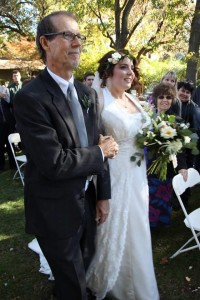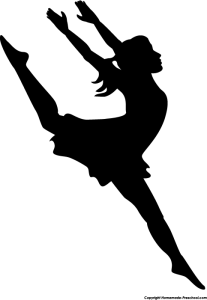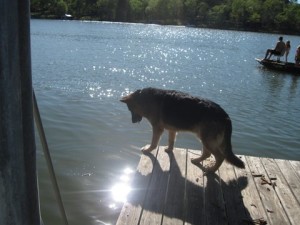Bring the lamp near.
Gaspar was accustomed to giving commands. Wealthy, of prominent lineage, tutored by notable scholars.
Gaspar, together with his friend – a devotee to the heavenly bodies – studied the star chart until their half-finished tea went cold.
Now. Let’s go have a look.
Straightening themselves they moved outside.
Lighted pinpoints blanketed the sky. The astrologer-scholar tilted his head, directing his chin toward the westward horizon. He signaled his friend. There.
Gaspar’s deep eyes, squinting just moments ago, widened. Ah, yes. Acknowledging further by a lifted hand he whispered, Yes, I see. Then added, Um, yes, this one has never caught my eye before tonight. Indeed I don’t recall ever seeing it. This star.
You have not seen it because it has never been. Not until these weeks.
Well, said Gaspar, We must look into parchments of civilizations past – others as well as our own. And determine.
Determine what, nobel friend?
What, if any, purpose a new star in the heavens may serve. Fortune perhaps?
Months later, Gaspar riding his beast – rolling slowly with its stride – reviewed that night. He savored occasions when he could – without intrusion – review his past, his station in life, his good fortune.
Keeping to his general disposition he struggled with humility. This, he himself would not deny. Truthfully, he did find himself growing uneasy at his self-congratulatory musings. But only slightly.
Of course it was I who first took serious note of the light in the western sky. And didn’t I, Gaspar, in my research, uncover the mystery-promises?
The promises, he recalled, were oral references of ancient Hebrew parchments – oracles predicting a king’s birth. A child-king promised to the Hebrew peoples. . . perhaps even to the world. His shoulders lowered and he sighed, reluctant to credit others whose qualities were equally vital to the cause.
Yes, he conceded, Melchoir was he whose dream one night launched a relentless search of the heavens for some guiding star. And, yes, it lay with Belthazar’s talent to coordinate and map the pilgrimage details – a talent unmatched by most skilled trackers across the eastern world.
Still.
Was it not I among the magi – Gaspar swept his billowy-sleeved arm in an arch denoting his companions. Was it not I of whom the elders in my land whispered openly, ‘Of course Gaspar will lead the expedition. Such a venture demands leadership. Who else?’ His slight-turned smile – even in reflection – betrayed smugness. Shouts interrupted his thoughts.
Master, master! The light we have followed all this way. The star. It seems to have ceased its forward advance. It is lowered now. Fixed. In place. And see, now master, to the valley there ahead. The town. Might it be the place of the king-child. Might it be, master? The servant drew back, rejoining his fellows, each of them abuzz with theory.
The fourth watch was half-run when the caravan finished its descent, trimming the distance to the sleeping village. The star’s brightness shone from directly above them. Gaspar squirmed in his saddle, a curious discomfort had been rising inside him for awhile. With no prompting of any kind he knew. The disquiet was in his soul – a deep troubling within. He shuddered – less settled still.
The star’s light – distinct and above him – converged it seemed with another kind of light – invisible, holy, searing. Illumining his whole person, his inner self. Gaspar’s shudder yielded to a muffled cry – lamenting, confessing, sorrowing. The shift of mood became his. He owned it and it overtook him.
Woe, woe am I. Corrupt. Arrogant. Viewing my brother with contempt. The remorse went on, spilling out. I am brought low, an unworthy being. Seekings – soul-questions – displaced his confessions. But before whose face I am unworthy I know not. I dare not proceed. . . to the place of the king-child. Who is this one, this child? Is it he who moves upon me so – here, even before I view his face?
He drew his camel back, brought his cape over his face. At his command – oddly meek now to his animal’s ears – the camel knelt. Gaspar dismounted. He went to his knees in the sand. Unworthy. I’ve nothing to give. Even the myrrh I bring. No, I must receive. Must gain mercy. Mercy. Exalted Being. . Governor of constellations. Mercy!
In moments he sensed a thing wholly new to his experience. A presence. Then he felt a word – felt it more than heard it. Bathed. . . bathed. The term marked more than any the feeling sweeping him – washing through him. A bathing presence. Wave on purifying wave. Cleansing. Marked by joy.
He didn’t know the time he lingered – the cleansing under the star’s light. His smile was wide, free – embracing the world all about him. After some moments he moved to rise.
His right leg, bent beneath him so long, had lost feeling. Reaching upward, he grasped a young tree’s low-hanging branch and raised himself. Steadying himself by the branch, he rolled the useless foot round and round in motion. A picture began forming in Gaspar’s mind as he balanced there on one leg. Yes, yes this is who I am. I am a man not able, of my own reserves, to properly stand. On my own I am out of balance. Needing support. Support such as found in this tree. He strengthened his grip on the branch.
Old fool you’ve been. Wagging his head, Gaspar chided himself. My own arrogance. My haughtiness. Assigning to myself glory not due me. This has left me a cripple. But now.
A surprise wave of thankfulness overtook him. Further, it stirred in him a resolve. And a pledge.
From this day I shall walk in the company of others. None of us alone – none isolated from the rest. My brothers – Melchior and Balthazar indeed – yes, and my servants as well. Guides they are – companions all – upon whom I may lean. Friends unto whom I shall render service. Yes, we shall be – each to the other – as a supporting limb.
But yet. The wise man paused. A worrying line formed. Are we – we humans, equal to this – frail supports that we are? Hardly fit to carry ourselves – even less one another. What of our frailties? Ours each one? Indeed it is we ourselves most needing support. And what support have we? Have we any?
Bustling movements interrupted his thoughts – excited calls sounding from a place just ahead. Ecstatic, adoring calls – calls voiced in varied tongues – Aramaic, Hebrew, Persian, Arabian. All declaring one thing – one person. The child-king.
One voice, with Persian accent, of Jewish descent – sounded above others. Distinct, crisp, jubilant. The call struck Gaspar’s soul. Cupping his ear to seize upon the phrases, he took them in, every word – one by one.
All worship to him, the Christ-child!
Messiah!
King!
Morning star!
the Branch!
The word almost escaped him.
Branch? Gaspar swallowed. A twilight breeze touched his face, stirring his beard.
Without thinking, he turned again to the tree still in his reach. He peered toward the lighted glow of a simple dwelling on the path ahead. Hope stirred.
I shall deliver the myrrh to my Lord.
He wrapped his fingers about the bough and squeezed, firm and long.
Gaspar mounted his animal. Take me now, camel. See the light of the dwelling there, camel?
We shall meet there a child.
The King-child.
©2015 Jerry Lout




